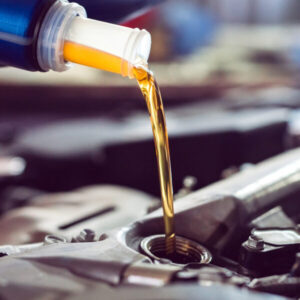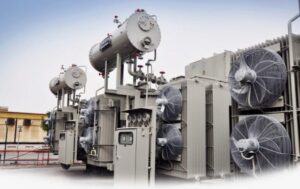How to Choose the Best High Speed Bearing Grease for Your Machinery
High-speed bearing grease is essential for the smooth and efficient operation of machinery. Proper lubrication not only enhances performance but also extends the lifespan of the bearings. This guide aims to provide comprehensive insights into selecting the best high-speed bearing grease for your machinery, ensuring optimal performance and reliability.
Understanding High-Speed Bearings
Key Factors to Consider When Choosing Grease
Operating Speed
The rotational speed, measured in revolutions per minute (RPM), significantly impacts grease selection. High-speed applications require grease that can withstand the centrifugal forces and maintain its lubricating properties without breaking down.
Temperature Range
Operating temperatures can vary widely in high-speed applications. It is crucial to select grease that remains stable and effective across the entire temperature range, preventing breakdowns or thickening that could hinder performance.
Load Carrying Capacity
Bearings may be subjected to various loads, including radial and axial forces. The chosen grease should contain additives that enhance its load-carrying capacity, ensuring it can handle the stresses imposed by the machinery.
Environmental Conditions
Machinery often operates in environments exposed to dust, water, and chemicals. The grease should offer robust protection against contaminants and be compatible with seals and materials used in the bearings.
Grease Consistency and Viscosity
The consistency of grease is indicated by its NLGI grade, while viscosity relates to its flow characteristics. Selecting the appropriate grade and viscosity ensures optimal lubrication and performance.
Types of High-Speed Bearing Grease

Mineral Oil-Based Grease
Synthetic Oil-Based Grease
Specialty Grease
Performance Characteristics of Bearing Grease
Wear Protection
Anti-wear additives are crucial for reducing friction and preventing wear. Evaluating the wear protection performance of grease ensures long-term reliability.
Oxidation Resistance
Grease must resist oxidation to maintain its properties over time. High oxidation stability prevents the grease from hardening or forming deposits, which can impair performance.
Corrosion Protection
Corrosion inhibitors in grease protect bearings from moisture and corrosive elements. Ensuring robust corrosion protection is vital for machinery operating in harsh environments.
Shear Stability
Shear stability refers to the grease’s ability to maintain consistency under mechanical stress. High shear stability ensures the grease remains effective during prolonged use.
Practical Steps to Selecting the Right Grease
Assessing Machinery Requirements
Identify the specific needs of your machinery by consulting manuals and manufacturer recommendations. Understanding these requirements is the first step in choosing the appropriate grease.
Conducting Grease Compatibility Tests
Compatibility tests are essential to ensure the new grease will work well with any existing lubricants. This prevents potential issues that could arise from mixing incompatible greases.
Evaluating Product Specifications and Certifications
Review technical data sheets to understand the specifications of the grease. Check for industry standards and certifications that validate the product’s performance and reliability.
Seeking Expert Advice
Consult lubrication experts and utilize manufacturer support services for guidance. Their expertise can help you make informed decisions and select the best grease for your needs.
Application and Maintenance Tips

Proper Grease Application Techniques
Use appropriate methods and tools for applying grease to bearings. Ensure even distribution to achieve optimal lubrication.
Routine Maintenance Practices
Implement regular inspection and re-lubrication schedules. Monitoring the condition of bearings and grease helps in early detection of potential issues.
Troubleshooting Common Issues
Learn to identify signs of lubrication failure, such as unusual noise, increased temperature, or vibration. Addressing these issues promptly prevents further damage and ensures continuous operation.
Final Thoughts
FAQs

What Is Diesel Fuel Oil: Benefits & Types of Diesel Fuel
What Is Diesel Fuel Oil: Benefits & Types of Diesel Fuel Discover More Diesel fuel oil is one of the most crucial energy sources powering global industries, from transportation and agriculture to construction, power generation, and shipping. Its efficiency, reliability, and ability to produce high torque and power make it the preferred fuel for heavy-duty machinery, trucks, buses, and generators. But what exactly is diesel fuel oil? What are its benefits, types, and environmental impact? And how is the diesel

What Are the Benefits of Using Rumanza Trac-92 T Over Conventional Oils?
What Are the Benefits of Using Rumanza Trac-92 T Over Conventional Oils? Discover More Lubrication is essential for the efficient operation of machinery, engines, and industrial equipment. Choosing the right lubricant can significantly impact performance, durability, and operational costs. Rumanza Trac-92 T is an advanced lubricant that outperforms conventional oils in various aspects. This article explores the key benefits of using Rumanza Trac-92 T and why it is a superior choice over traditional lubricants. Superior Thermal Stability One of the

Choosing the Right Rumanza 2 Stroke TC-W3 Oil for Your Needs
Choosing the Right Rumanza 2 Stroke TC-W3 Oil for Your Needs Discover More Selecting the right 2-stroke engine oil is not just about lubrication—it’s about maximizing performance, reducing wear, and ensuring engine longevity. Rumanza TC-W3 oil is a trusted choice among marine and small engine users, but with multiple formulations available, making the best selection requires a deeper understanding. Understanding TC-W3 Certification: Why It’s Crucial for Your Engine The TC-W3 standard, established by the National Marine Manufacturers Association (NMMA), is the highest performance rating for

Rumanza 2 Stroke TC Oil Review: Is It Worth the Hype?
Rumanza 2 Stroke TC Oil Review: Is It Worth the Hype? Discover More When it comes to maintaining the performance and longevity of your 2-stroke engine, the choice of oil plays a pivotal role. Among the myriad of options available, Rumanza 2 Stroke TC Oil has emerged as a popular choice, garnering significant attention for its advanced formulation and performance claims. But does it truly live up to the hype? In this in-depth review, we’ll explore every facet of Rumanza

Discover Rumanza Water Soluble Cutting Oil Benefits | Expert Insights
Rumanza Water Soluble Cutting Oil Benefits | Expert Insights Discover More In the fast-paced world of metalworking and machining, the choice of cutting fluids is critical to achieving precision, efficiency, and cost-effectiveness. Among the myriad options available, Rumanza Water Soluble Cutting Oil has emerged as a leading solution, trusted by industries worldwide. This article provides an in-depth exploration of the benefits of Rumanza Water Soluble Cutting Oil, offering expert insights into its formulation, applications, and advantages. Whether you’re a machinist,

Powering Efficiency: Why Rumanza Turbine Oil Is Your Best Choice
Powering Efficiency: Why Rumanza Turbine Oil Is Your Best Choice Discover More In industries where turbines play a critical role, the choice of lubrication can make a significant difference in efficiency, reliability, and longevity. Turbine oils are essential for reducing friction, preventing wear, and ensuring smooth operations. Selecting the right turbine oil is crucial to optimizing performance and minimizing maintenance costs. Among the many options available, Rumanza Turbine Oil stands out as the ultimate choice for industries requiring high-performance lubrication.

Choosing Best: Why Rumanza Transformer Oil Leads the Industry
Choosing the Best: Why Rumanza Transformer Oil Leads the Industry Discover More Transformer oil plays a crucial role in ensuring the efficiency and longevity of electrical transformers. As the demand for reliable power distribution grows, selecting the right transformer oil becomes increasingly important. Among the leading brands in the industry, Rumanza Transformer Oil stands out due to its superior quality, exceptional performance, and compliance with international standards. This guide explores why Rumanza Transformer Oil is the best choice and how
